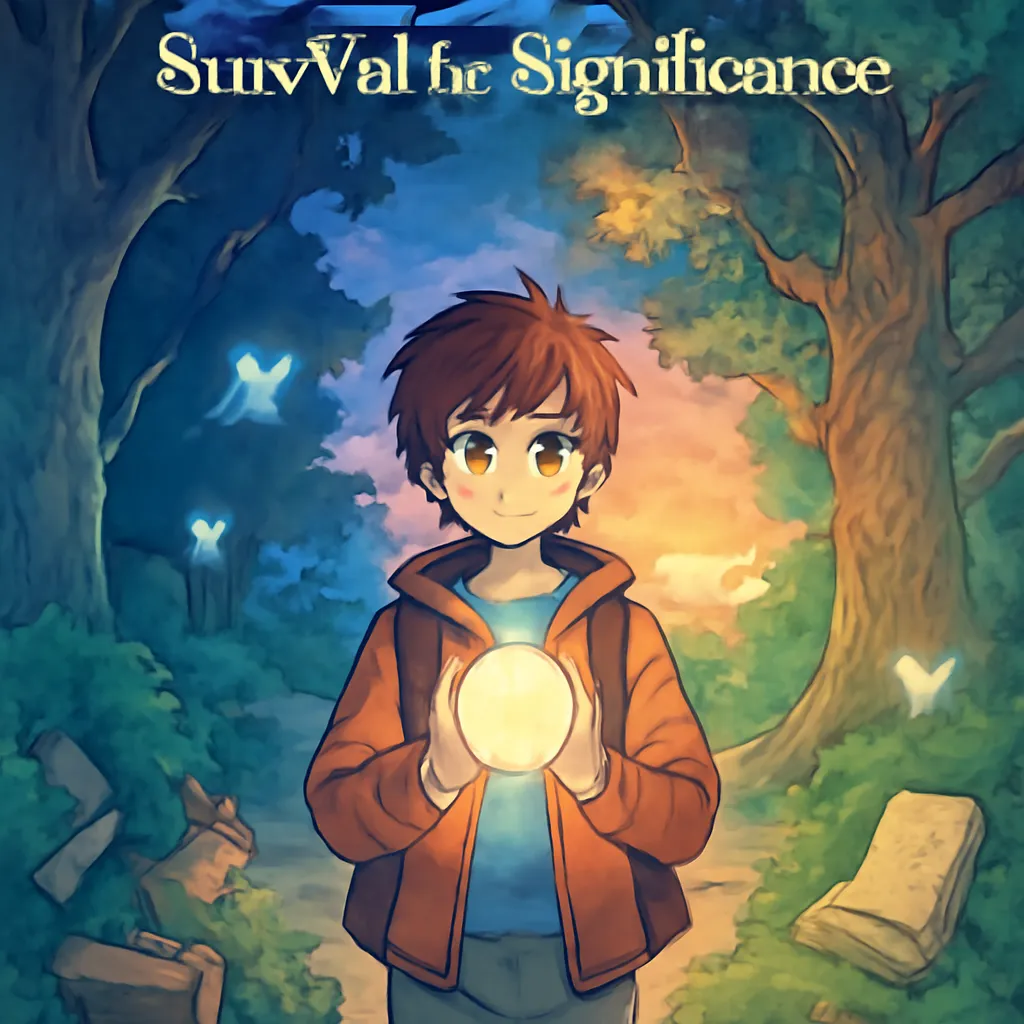Last year, I spent an hour a day learning how to play the ukulele. No, I’m not starting a band. But something unexpected happened: my confidence, focus, and creativity rippled into every area of my life. What if your biggest life upgrade could really start with just sixty minutes? Let’s kick conventional wisdom to the curb and look at why giving yourself just one hour a day might be the most rebellious, intelligent move you make this year.
Why One Hour Matters More Than a Time Machine
Let’s be honest: you’ve probably wished for a time machine at least once. Who hasn’t? The idea of rewinding your life, fixing mistakes, or squeezing in more hours sounds magical. But here’s the twist—research shows you don’t need a time machine. You just need one hour. Sixty minutes, carved out of your day, can be more powerful than any sci-fi gadget. That’s the real magic of One Hour Daily Productivity.
Rediscovering the Value of a Single, Uninterrupted Hour
Think about the last time you had a full, uninterrupted hour to yourself. No notifications. No emails. No one asking for “just a minute.” It’s rare, right? Yet, that single hour is where the seeds of transformation are planted. Studies indicate that one hour of daily focused productivity and learning can significantly impact your personal and professional growth. It’s not about having more time—it’s about using the time you already have with intention.
How Most People Waste an Hour (and Why You Don’t Have To)
Most people claim they’re “too busy.” But if you look closer, it’s easy to spot the cracks where time slips away. Scrolling through social media. Watching “just one more” episode. Gossiping about things that won’t matter tomorrow. It’s not that you don’t have an hour; it’s that your hour is leaking away, unnoticed.
- On average, people spend over an hour a day on social media alone.
- That’s 365 hours a year—enough time to master a new skill or change your life’s direction.
Successful people? They see that hour for what it is: a secret weapon. They invest it in reading, learning, planning, or practicing. They know that Time Management For Self-Improvement isn’t about squeezing more into your day, but about making your hours count.
Borrowed Time: Coffee-Break Revolutions vs. Netflix Black Holes
Here’s a thought experiment. Imagine two people with the same job, same family, same 24 hours. One spends their lunch break scrolling through memes. The other? They use that hour to learn a new language, write a business plan, or meditate. After a year, who’s further ahead?
That’s the difference between a coffee-break revolution and a Netflix black hole. One is borrowed time, invested wisely. The other is time lost, never to be reclaimed. As the saying goes:
"You make time for what you value. If your future isn't worth one hour a day, then you're not serious about your future."
Anecdote: The Accidental Linguist Who Learned Spanish Over Lunch
Let’s get personal. Picture someone who, every day during lunch, popped in headphones and practiced Spanish on a language app. No grand plan, just a daily habit. After a year, they could hold a conversation. After two, they traveled to Spain and chatted with locals. All from one hour a day—proof that Personal Development Strategies don’t require radical life changes, just consistent, intentional effort.
It’s easy to underestimate what you can do in an hour. But one hour daily equals 365 hours a year. That’s more than two full weeks of focused learning or skill-building. Research shows that after a year of daily learning, you’re ahead of 95% of people. In five years? You’re unrecognizable from who you were before.
So, the next time you wish for a time machine, remember: you already have something better. One hour. Use it, and watch your life transform.

Small Habits, Big Swagger: Erosion Beats Earthquakes
Let’s get real: Building Habits For Success isn’t about flipping your life upside down overnight. It’s about the tiny, almost invisible things you do every single day. If you’ve ever wondered why some people seem to level up year after year, while others stay stuck, here’s the secret—consistency in personal growth. Not talent. Not luck. Not even connections. It’s the discipline of showing up, quietly, when nobody’s watching.
"The difference between those who succeed and those who don't is rarely intelligence, luck, or connections. It's discipline. It's routine."
Think about it: one hour a day. That’s the price. You make time for what you value. If your future isn’t worth one hour a day, then maybe you’re not as serious about it as you think. Research shows that investing time daily in yourself yields long-term benefits through small, consistent actions. One hour of focused effort—reading, learning, practicing, reflecting—adds up to 365 hours a year. That’s a mountain of progress, built one drop at a time.
Drops of Effort Carve Mountains Over Time
Imagine water dripping on stone. One drop? Nothing. But over time, those drops carve canyons. That’s how small habits work. You don’t see the change right away. You might read a page a day and feel like nothing’s happening. But a year later, you’ve finished a book. Or maybe you spend an hour learning a new language. At first, you stumble through phrases and forget half the words. Thirty days in, you’re better. Ninety days in, you’re having basic conversations. That’s the long-term benefit of small actions—it sneaks up on you, quietly, until suddenly you realize you’ve changed.
Patience: Your Sneaky Power Move
Most people quit because they expect fireworks after a week. You go to the gym once, and nothing changes. You meditate for five minutes, and your mind is still a mess. But here’s the wild card: what if you meditated for just five minutes every day, for a year? Science says your brain would literally rewire itself. You’d be calmer, more focused, less reactive. The real transformation happens invisibly at first. That’s why patience is your secret weapon—most people never stick around long enough to see the magic.
Habit Stacking: Make Growth Automatic
Want to make consistency in personal growth easier? Try habit stacking. Pair a new habit with something you already do. Write a journal entry while your coffee brews. Listen to a language podcast during your commute. These micro-actions are bite-sized and achievable, making it way less likely you’ll bail when life gets busy.
Uncomfortable Is Normal
Let’s be honest: every new skill feels awkward before it feels rewarding. The first week is clumsy. The second week is frustrating. But that’s normal. Growth is uncomfortable. The trick is to keep showing up, even when it feels pointless. Over time, those tiny, uncomfortable actions stack up. They become your swagger—the quiet confidence that comes from knowing you’re putting in the work, day after day.
- Read one page a day = a book in a year
- One hour of learning daily = 365 hours a year
- Thirty days of practice = visible progress in any skill
Persistence and deliberate repetition, not grand gestures, are what separate high achievers from the rest. So, next time you’re tempted to wait for the “perfect moment” to start, remember: erosion beats earthquakes. Every drop counts.

Rewiring Your Mindset: Trading Survival For Significance
Let’s be honest—most days, you’re probably running on autopilot. You wake up, handle your to-do list, put out fires, and hope to make it through without dropping any balls. This is survival mode, and it’s the default setting for most people. But what if you could shift your mindset from just surviving to actually building a life of significance? That’s where the real magic happens, and it all starts with a simple, daily commitment to personal growth consistency.
Waking Up from Survival Mode
Survival mode feels safe because it’s familiar. You react to problems as they come, always a step behind, always catching up. But research shows that a mindset shift from survival to significance is what truly enhances motivation and unlocks proactive preparation for future success. Instead of waiting for a crisis to force your hand, you start making intentional choices that move you forward—one hour at a time.
Survival vs. Significance: The Real Difference
Survival is about crisis management. You’re always patching holes, never building anything lasting. Significance, on the other hand, is about meaning-making. It’s about asking, “What can I create today that will matter tomorrow?” When you invest an hour daily in learning, planning, or practicing, you’re not just getting by—you’re building a foundation for a meaningful, influential life. Studies indicate that building skills before they’re urgently needed sets you apart when the unexpected happens.
Tangent: Why You’re Not Actually Lazy
Ever wonder why you put off that new project or skill? It’s not laziness—it’s your brain trying to protect you from failure. Strangely, your mind fears small, everyday failures more than the big ones. Missing a day of practice or stumbling over a new concept feels uncomfortable, so you avoid it. But here’s the secret: those tiny failures are where growth lives. Every time you push through, you’re rewiring your brain for resilience and adaptability.
Building Before You Need It: A Real-World Story
Consider the story of a friend who learned coding—not because they had to, but as a form of insurance. Years before automation swept through their industry, they spent an hour each day learning to code. When layoffs hit, they weren’t scrambling; they were ready. That’s proactive preparation for future success in action. They didn’t wait for opportunity—they created it.
"You're not waiting for opportunity. You're creating it. You're not hoping for good luck. You're preparing for every possibility, good or bad."
Small Daily Investments, Big Future Payoff
Think about it: saving a small amount each day creates a safety net. Learning a new skill early prepares you for job changes and industry shifts. These are not grand gestures—they’re small, consistent actions that compound over time. The move from survival to significance is about making proactive, identity-driven decisions. You’re not just reacting to life; you’re shaping it, one disciplined hour at a time.
So, how do you start? Carve out that one hour. Use it to learn, reflect, build, or connect. Don’t wait for a crisis to force your hand—build before you need it. This is how you trade survival for significance, and it all begins with a single, intentional hour each day.

Lifelong Learning and Digital Street-Smarts: No More Gatekeepers
Let’s be honest—if you’re waiting for someone to hand you a golden ticket to personal growth, you’ll be waiting a long time. The world has changed. The gatekeepers are gone. In the Lifelong Learning Digital Age, the real winners aren’t the ones with the fanciest degrees or the biggest job titles. They’re the ones who keep learning, adapting, and growing—no matter what life throws their way. This is the era of Continuous Learning Digital Literacy, and it’s never been more accessible or more essential.
Think about it: with just your phone or laptop, you have access to more knowledge than the richest kings had a hundred years ago. As one expert put it,
"With one device in your hand, you have access to more knowledge than the richest kings had a hundred years ago."
That’s not just a fun fact—it’s a superpower. The only question is, are you willing to use it?
DIY Over Degrees: How-To of Self-Education in the Digital Age
Forget the old rules. You don’t need a classroom or a formal curriculum to get ahead. Today, self-education is as simple as searching, clicking, and committing. Want to learn coding? There’s a free course for that. Curious about digital marketing or emotional intelligence? You’ll find a podcast, a YouTube channel, or an online community ready to teach you. Research shows that continuous digital learning and emotional intelligence are key growth areas for 2025, so why not start building those skills now?
Knowledge: The Compound Interest in the Bank of Life
Here’s a creative analogy: knowledge is like compound interest. Every skill you learn, every new idea you absorb, adds up. But unlike money, knowledge doesn’t depreciate. It multiplies with use. One insight today could spark a business tomorrow. One hour of learning could change your career trajectory next year. The more you know, the more you can see—and the better decisions you’ll make. That’s leverage. That’s resilience.
Wild Card: One Hour a Day, Infinite Possibilities
Imagine this: you decide to teach yourself graphic design from YouTube, investing just one hour daily. Fast-forward a year. What doors could open? Maybe you’re freelancing, building a side hustle, or even launching your own brand. That’s the magic of Investing One Hour Daily—it’s not just about what you learn, but about who you become in the process. Studies indicate that small, consistent actions drive the biggest transformations over time.
Battle Plan for Digital Distractions: Feed Your Mind, Not Just Your Feed
Let’s face it—distractions are everywhere. Social media, endless news, clickbait videos. It’s easy to scroll away hours without even noticing. But here’s the secret: discipline is your shield. Choose to feed your mind, not just your feed. Replace passive scrolling with active learning. Set a timer for one hour. Pick a topic. Dive in. The digital world rewards active learners, not just consumers.
- Start with microlearning—short, focused bursts of study.
- Personalize your learning path. What skills excite you? What gaps do you want to fill?
- Write down your goals and share your progress. Research shows this boosts your chances of success.
Even basic digital literacy and daily self-learning can unlock unimagined personal and professional possibilities. In a world where industries shift and jobs evolve, your ability to keep learning is your greatest asset. The only thing standing between you and your next breakthrough is the choice to start—one hour at a time.
Failing at Perfection, Winning at Consistency: Secret Sauce for 2025
Let’s be honest: chasing perfection is exhausting. You set out with the best intentions—big goals, big dreams, a vision of flawless execution. But somewhere between the first burst of motivation and the reality of daily life, the cracks start to show. The truth? Perfection isn’t just overrated; it’s a trap. The real magic, especially when it comes to Daily Discipline For Life Changes, is found in consistency.
Think about it. Anyone can show up once. The real challenge is showing up when it’s hard, when you’re tired, when no one’s watching. That’s where the power lies. Every time you keep going when it would be easier to quit, you’re not just making progress—you’re building character. You’re building resilience. You’re building trust with yourself, and that’s the foundation of every meaningful change.
Consistency creates clarity. When you commit to a path, you start to see what works and what doesn’t. You don’t just move forward; you move forward with insight. The daily grind becomes a feedback loop. Each loop sharpens your focus, improves your process, and gradually transforms your mindset. It’s no longer about trial and error—it’s about precision and growth.
Let’s get real for a second. Most failures don’t come from a lack of talent or effort. They come from giving up too soon. Progress is almost always invisible at first. You might not see the results after a week, or even a month. But keep going, and suddenly, you look back and realize how far you’ve come. That’s the compounding effect of consistency. It’s like writing one page a day—at first, it feels like nothing. But after a year, you’ve written a book. One hour a day? That’s 365 hours a year. That’s a massive leap in any skill or area of life.
Here’s a little story: My first week at the gym was a disaster. I felt awkward, out of place, and honestly, a bit embarrassed. But I kept showing up. Week after week, the embarrassment faded, and the progress—though invisible at first—started to show. A year later, not only was I stronger, but I had built a habit that changed my entire approach to self-improvement. The lesson? Celebrate invisible progress. Most improvement happens without fanfare, in the quiet moments when no one else is watching.
Research shows that setting SMART Goals For Improvement—goals that are Specific, Measurable, Attainable, Relevant, and Time-bound—significantly increases your chances of success. But here’s the twist: it’s not just about the outcome. It’s about the process. Writing down your goals and tracking your progress turns vague intentions into daily actions. It’s these Self-Improvement Daily Goals that create lasting change, not the pursuit of some unattainable ideal.
People often overestimate what they can do in a day and underestimate what they can do in a year. That's the paradox of progress.
In 2025, the world will keep spinning faster. The most valuable asset you can own isn’t a degree or a title—it’s your ability to learn, adapt, and grow, every single day. The biggest changes sneak up on you, built one small action at a time. So, show up. Not perfectly, but consistently. Because that’s where the real transformation lives—and it’s yours for the taking.




